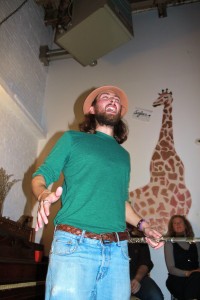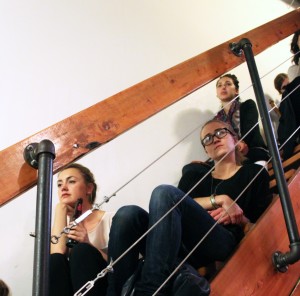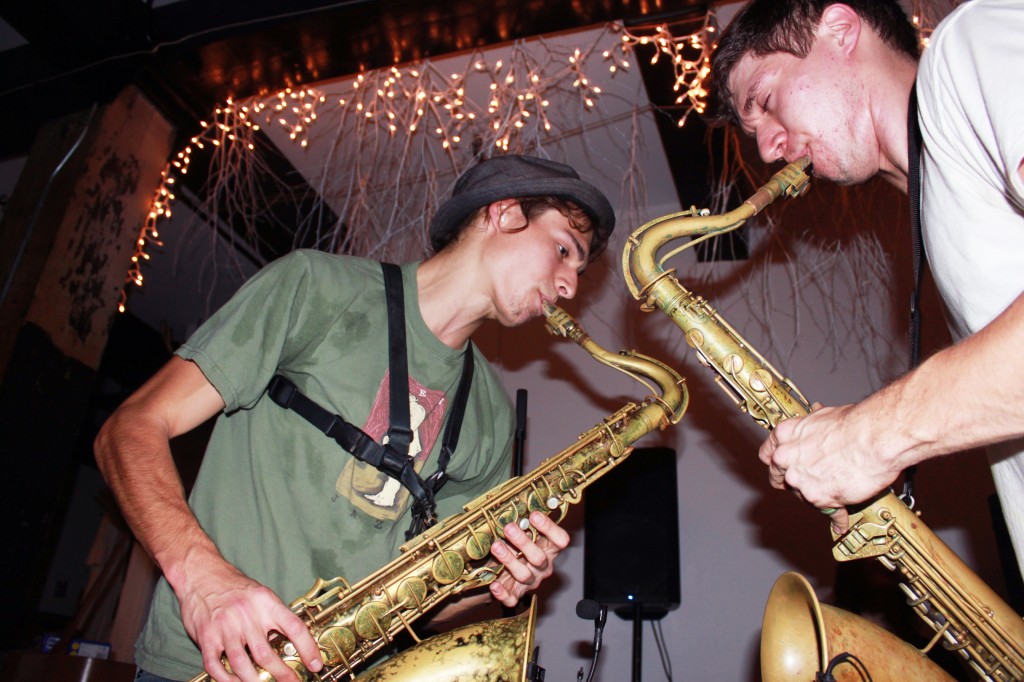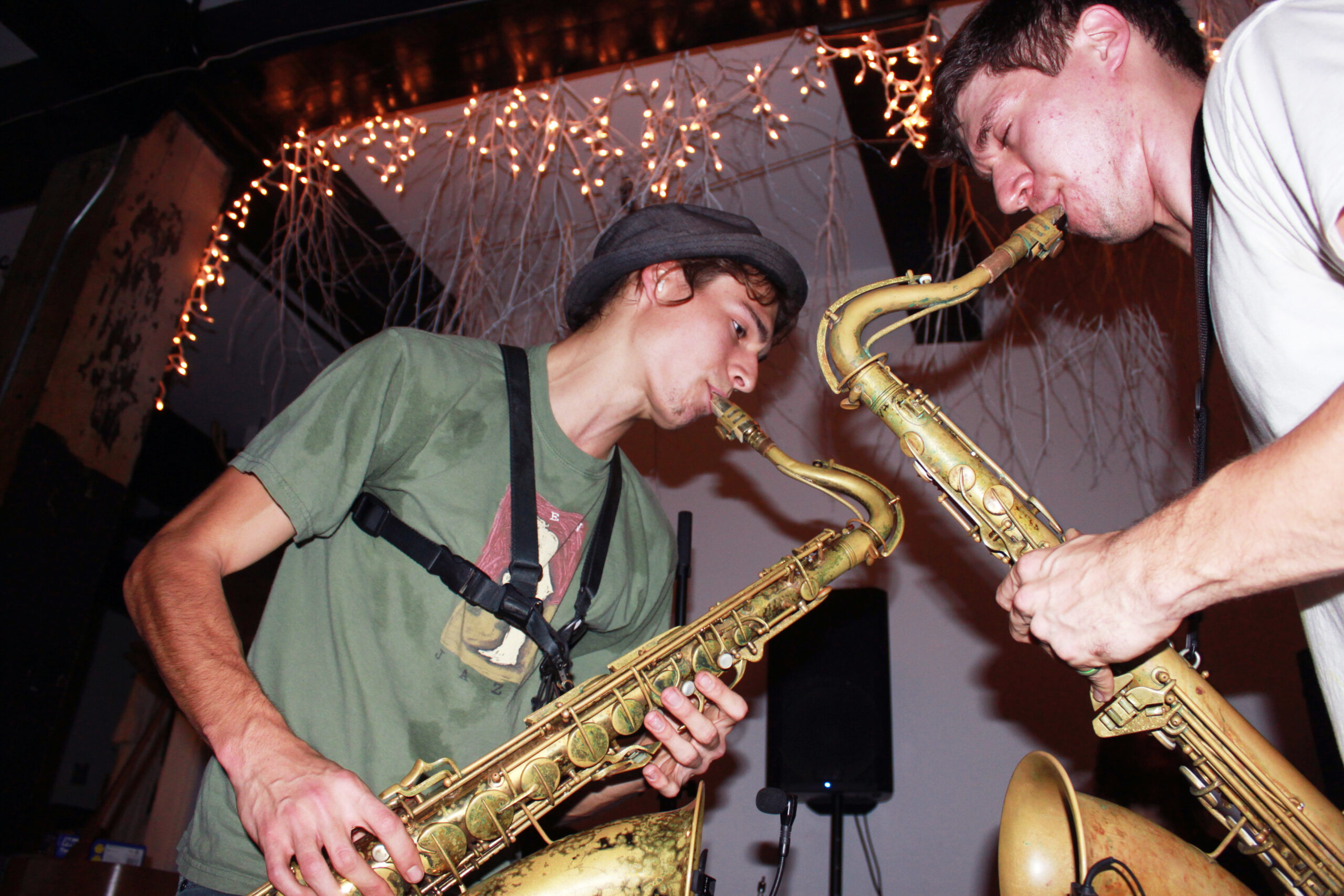Growing pains for Sofar Sounds

In a loft in an old warehouse in Williamsburg, a room full of strangers sit on an antique rug on the floor. Their eyes are fixed on a long-bearded musician with a British accent with a flute in hand. While others sit in front of a wall with a giraffe painted on it, the bearded man begins to play.
This is what it’s like at a Sofar event — unplugged performances in people’s apartments and houses shared with an audience of strangers — strangers that are simply there to listen to music, not to get drunk or maybe get lucky. The rules: keep your mouth shut, your phone off and your ears open.
Sofar Sounds is an organization that arranges up-and-coming musicians to perform in people’s homes for a diverse crowd of music aficionados — students, professionals and everything in between. Most importantly, it’s free.
Sofar Sounds was founded in London by Rafe Offer, who works in marketing and advertising, and London-based musician David “Passion Ate Dave” Alexander, in March 2009. As a contrast to the business of the music industry, they strive to focus on the musical experiences and not necessarily on making money off the music; a principal that may challenge them as they try to expand.
“I was in a bar with [Alexander] watching [English band] The Friendly Fires,” Offer said, “and we couldn’t believe how many people in the venue were talking or texting or drinking — anything but listening.”
In search of a crowd that was seeking to have a musical experience that involved making a connection between the audience and the performer, Offer and Alexander hosted a small show in Alexander’s living room in his tiny Northwest London loft. “It was magic. Then we decided to do it again but this time in another house and our friend Rocky Start hosted,” Offer said.
Shortly after, the word began to spread. The concept of this intimate night, where the audience is quiet and close to the performer, became popular. Since 2009, Sofar has expanded and takes place every month in more than 30 different cities world wide. They have about 200 shows a year and are working on making it 500 with a global audience of 10,000 people and counting.

To become an audience member or performer you subscribe on Sofar’s website and fill out an extensive survey. A month later, you will receive an email requesting you RSVP to an event, but you will not be notified of the location until the night before the performance. This helps make events more exclusive and exciting — something that may be in jeopardy when expanding.
Sofar Sounds faces the challenge of wanting to expand without selling out. They want to provide a place where musicians can play their music without being exploited for a profit. There is a line that Sofar does not want to cross: they do not want to become an organization that meets the needs of the employee and not those of the artists. Riley Renhack, an intern and band scout for Sofar, commented on their quick growth and newfound growing pains. “It’s like how do we remain cool?,” Renhack said. “They [Sofar Sounds creators] don’t want to sell out and but at the same time we are broke and not making any money.”
“I work from home mostly in the evening or on the weekends. Almost all of those who work for Sofar around the world have day jobs,” Jodie Belman, head of Sofar NYC division said. In fact, some members of the Sofar team said they preferred it this way.
“I really don’t consider Sofar work, So I don’t think I would ever want it to be my job. I want to continue living Sofar and not worry about Sofar making me a living,” Damon Versaggi, co-head of Sofar NYC division said.
For performers, working with Sofar is a memorable experience since it’s like being part of a community. Sam Bush, a member of the band The Hill and Wood, said, “It was definitely one of the most distinctive concerts in our recent memory. There’s no space between you and the audience. There’s a level of trust that’s in the Sofar community that is really admirable.”

New School for Jazz alumni and Brooklyn-based band Moon Hooch has performed with Sofar twice. “It was interesting because it was not quite our typical environment — it’s not like a dance party, it was more like an internal, emotional experience shared by many people together,” Wenzl McGowen, saxophonist from Moon Hooch, said. “Sometimes small spaces make it easier to connect with the audience for the reason that you can see everybody.”
Whatever the outcome of the conflict that Sofar is facing, it seems that the artists take priority for now. As the audience of 10,000 people or more grows with each event, Sofar faces many challenges of how to approach their growth. “[Our goal is] to have at least two gigs a day — somewhere in the world,” Offer said. “A truly global community connected by music and to find ways to sustain this — be it music publishing or partnerships. Finally to grow, but with integrity.”
“Growing with integrity” is so essential to Sofar. It is one of the few places that musicians and audience members take priority over making a profit. It’s also one of the few places where the audience respects the musician. Renhack said, “You have a completely wholehearted audience that simply is like ‘play me music.’”
With reporting by Natalie Moses, Shea Carmen Swan and Charlotte Woods
Francia is currently a Culture & Media major student about to graduate. She hopes to write for a cheesy sitcom or television series one day. Her hobbies include binge watching shows on Netflix and drinking wine.








Leave a Reply